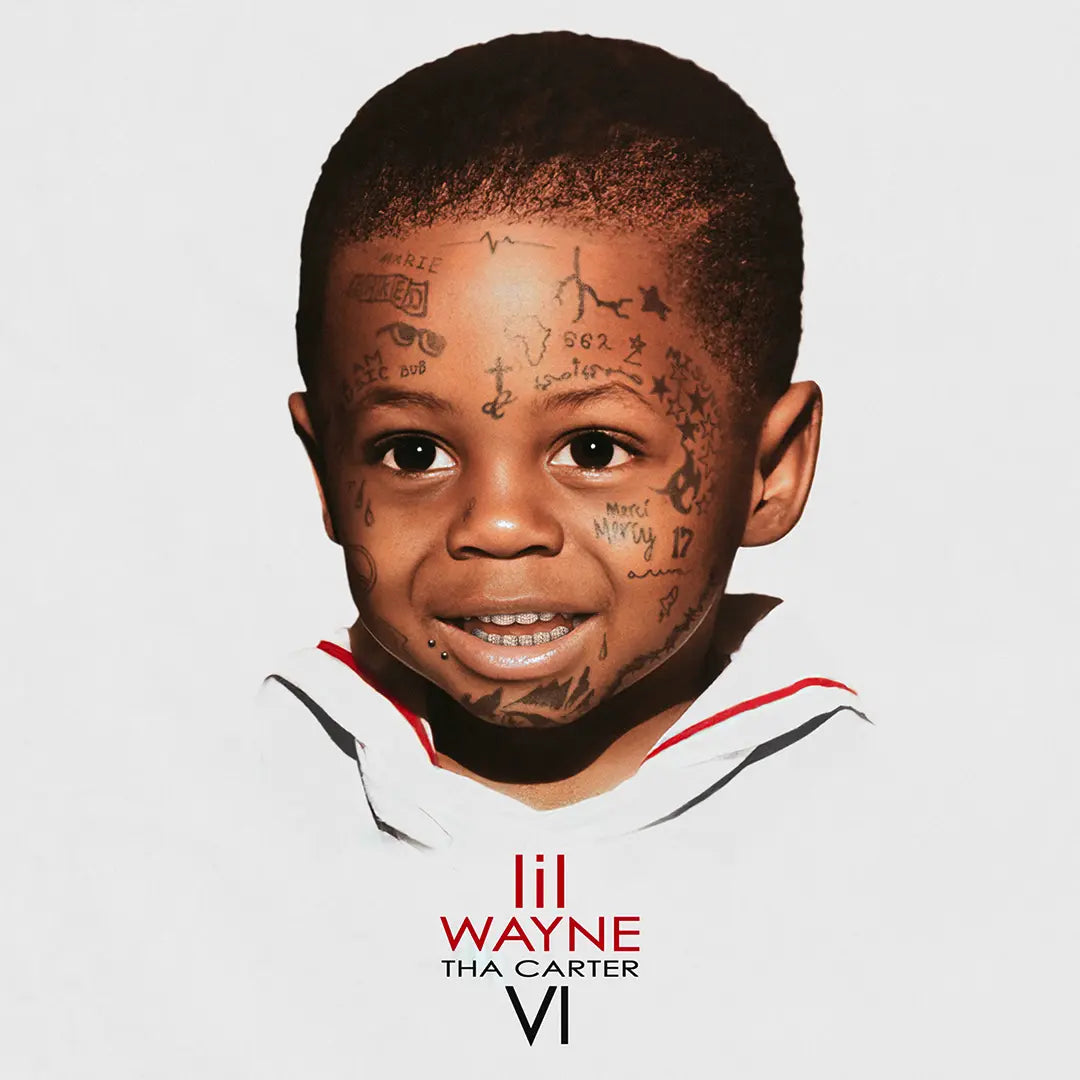
After years of speculation and delay, Lil Wayne finally returns with Tha Carter VI, a sprawling and chaotic album that feels caught between nostalgia, experimentation, and identity crisis. At 19 tracks, it's a dense offering, but not always a focused one. While there are moments of brilliance — both musically and lyrically — they’re often buried under inconsistent production, awkward features, and some of Wayne’s least compelling performances to date.
The album opens with “King Carter,” a cinematic and self-congratulatory intro that sets a grand tone with gritty guitar textures and reflective bars about Wayne’s legacy. It's one of the few moments where the production matches the ambition of the message. This is quickly followed by “Welcome to Tha Carter,” which samples a charming slice of 1950s R&B but quickly descends into an uninspired loop where Wayne’s clever wordplay can’t save the bland beat and unvaried flow. It’s a reminder that, while Wayne’s lyrical instincts are still intact, they’re not always paired with the right musical backdrop.
That issue repeats itself often. “Bells” rides on a deep, heavy bass line but feels strangely hollow — like a demo missing its final layer. Even when Wayne snaps into moments of energy, the production never quite lifts with him, leaving his verses stranded. “Hip Hop,” which features BigXthaPlug and Jay Jones, shows more life. The beat is fuller, and the layered vocals between Wayne and his guests give the track a nice dynamic. Still, Wayne sounds like he's struggling to keep up with the beat’s bounce, and his verses lean heavily on tired language that undermines the track’s energy.
Elsewhere, Tha Carter VI experiments with genre fusion — sometimes to surprising success. “Sharks,” featuring Jelly Roll and Big Sean, introduces a moody, melancholic atmosphere that suits the guest artists well. Big Sean in particular shines with a tight verse that contrasts Wayne’s looser delivery. But even here, Jelly Roll’s chorus begins to feel overdone by the end, especially compared to Sean’s more controlled tone.
Tracks like “The Days” and “Island Holiday” showcase the album’s most jarring detours. The former channels a bizarre mix of early 2010s pop-rock and post-EDM optimism, sounding like an awkward blend of U2, 21 Pilots, and Wayne’s own sunny nostalgia. Bono’s appearance adds to the confusion more than the cohesion. “Island Holiday,” which samples Weezer’s “Island in the Sun,” feels like a good idea on paper but collapses under heavy auto-tune and forced “Carter VI” ad-libs. It overstays its welcome, dragging a novelty into tedium.
Wayne’s rapping is at its best when the production gives him room to focus. On “Loki’s Theme,” he snaps into a clean, catchy flow, and the beat — though it takes an unexpected rock turn — complements his energy. It’s one of the more unique songs here and stands out simply for taking a risk that mostly works. “If I Played Guitar” and “Being Myself” similarly offer softer, more introspective moments. The acoustic guitar on the former and the retro-Motown vibe of the latter provide a richer texture than many of the album’s trap-forward beats, though Wayne’s overuse of auto-tune holds both back from truly landing.
There are also outright misfires. “Peanuts 2 N Elephant” has a cartoonish, Sega Genesis-like beat that sounds more like a YouTube parody than a serious track. “Mula Komin In” drowns its potential under muffled mixing and a jarring hook from Lil Novi that feels like it wandered in from a different project entirely. “Alone in the Studio With My Gun” is another low point — underwritten, poorly produced, and featuring some of the album’s worst bars.
Still, the album tries to course-correct with “Maria,” a bright moment built on a clever sample and a tight feature from Wyclef Jean. Wayne sounds engaged and locked in, making it one of the more complete and satisfying cuts on the record. And while the closing track, “Written History,” tries to bring things full circle with an introspective vibe and big proclamations about his greatness, it comes off as oddly defensive and slightly petty — especially with thinly veiled shots at Kendrick Lamar. The beat resonates well, but the message feels forced rather than earned.
Tha Carter VI is not without merit. There are glimpses of the Wayne who changed the sound of rap in the 2000s — playful, unpredictable, technically sharp. But those moments are fleeting. Too often, the album feels like it's searching for direction, unsure if it wants to be an introspective victory lap, a genre-blending experiment, or just a fun mixtape-style release. The result is a bloated and uneven project where flashes of brilliance are weighed down by filler and fatigue.
RATING: 5/10
NOTABLE TRACKS:
Loki’s Theme
Maria
Sharks
Being Myself

